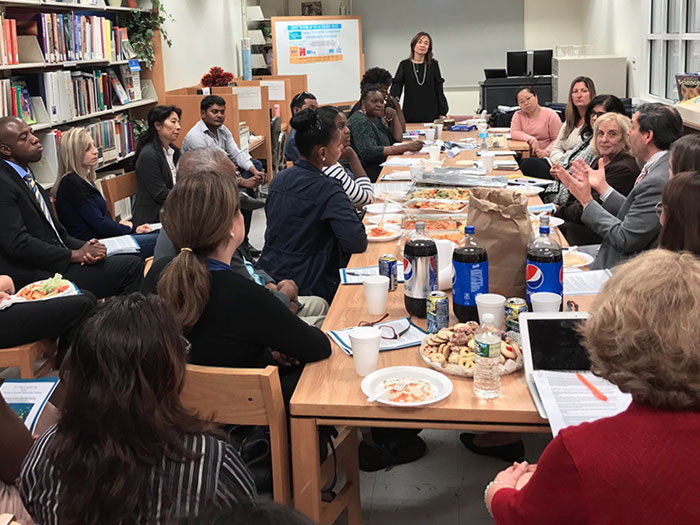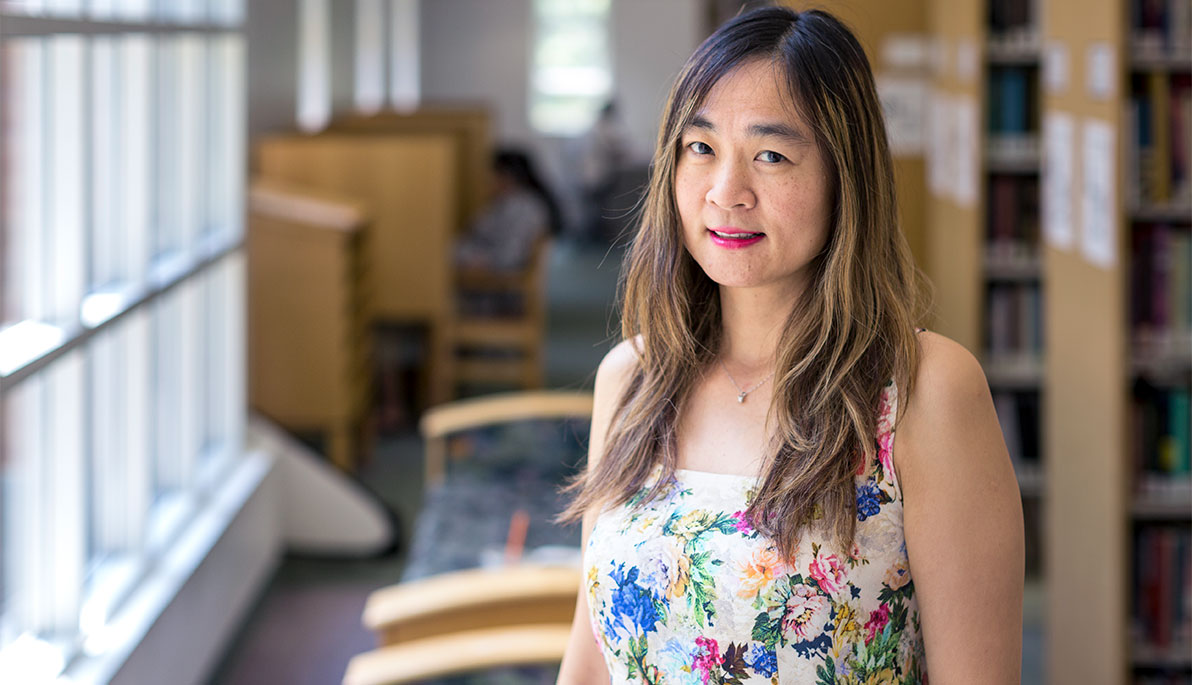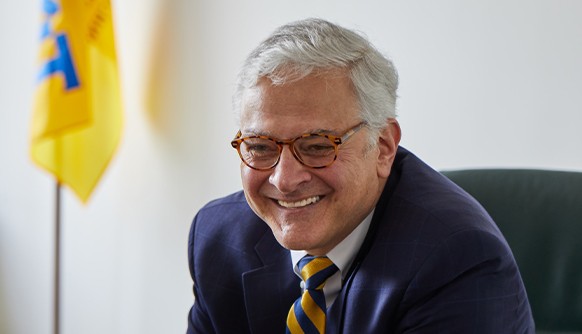News
Q&A with Hui-Yin Hsu: Empowering Teachers Around the World
October 18, 2017
Each year on October 5, educators around the world commemorate World Teacher’s Day. To coincide with this year’s events that took place at UNESCO’s headquarters in Paris, NYIT hosted its own panel discussion around this year’s theme, Teaching in Freedom, Empowering Teachers.
NYIT faculty members, students, and alumni as well as UNESCO representatives gathered at Wisser Library on the Old Westbury campus on October 12 to share their experiences and discuss ways to prepare teachers and enhance students’ learning experiences through the use of technology.
Hui-Yin Hsu, Ph.D., professor and chair of Teacher Education and organizer of the panel with UNESCO, sat down with The Box to talk about the importance of empowering teachers around the world.
What is World Teacher’s Day?
Since 1994, World Teachers’ Day is held annually on October 5 to commemorate the anniversary of the signing of the 1966 UNESCO/ILO Recommendation concerning the Status of Teachers. The 1966 Recommendation constitutes the main reference framework for addressing teachers’ rights and responsibilities on a global scale. The 2017 World Teachers’ Day will also celebrate the 20th anniversary of the 1997 UNESCO Recommendation concerning the Status of Higher-Education Teaching Personnel with a special focus on institutional autonomy and academic freedom to encompass this year’s slogan Teaching in Freedom, Empowering Teachers.
Can you talk about this year’s theme—Teaching in Freedom, Empowering Teachers? What is its main message?
How to bridge the gap between teachers’ freedom in teaching and teaching to the test. Teachers are pressured to ‘teach to the tests’ because of the emphasis on students’ learning outcomes measured by standardized exams. Teachers’ annual evaluation is also heavily relied on students’ standardized learning outcomes. Our discussion focused on how to empower teachers through the use of technology through online platforms like SMILE (Stanford Mobile Inquiry-based Learning Environment) and how NYIT Teacher Education plays an important role in defining future teacher preparation/education.

NYIT faculty members, students, alumni, and UNESCO representatives at the panel discussion Teaching in Freedom, Empowering Teachers.
Why are conversations like this important?
Teachers are a critical foundation of every society’s long-term strength providing children, young people, and adults with the knowledge and skills they need to fulfill their potential. NYIT Teacher Education plays an important role not only locally but also globally. We can share our research and expertise in technology to enhance teacher training, teachers’ quality, and educational services with the world. Conversations like this will raise the awareness of how critical teachers are to our next generation and our future and how to empower and prepare our teachers to use technology to promote quality education.
How do you empower teachers?
Make sure your teachers have a voice in the selection of curriculum, tools, and processes. Allow teachers to have a say in professional development options and feature teachers as experts. Celebrate them in the community and give them an opportunity to share what is working. Evaluate teacher workload to make time for innovation. Reward risk-taking and embrace the possibility of failure. Empower teachers through the use of technology.
What is the biggest takeaway from the panel discussion?
There were three main takeaways:
- Technology affordance and paring pedagogy: Using technology to enhance the quality of teaching, to promote inclusive education, and to enhance future education.
- Importance of global connection: We are ONE; we are all connected. Promote awareness in diversity and celebrate global and digital citizenship.
- Empowerment needs: Culture, values and beliefs, self-efficacy, self-motivation, support, infrastructure, and local and international collaborations. Empowerment of parents and increasing parental involvement in education.
This is a subject you are very passionate about and you have traveled the world to talk about it. Can you tell us about some of your recent experiences?
In 2016, I was invited by Mexico’s Ministry of Higher Education to deliver a keynote address on using Information and Communication Technologies (ICT) for college preparation and job readiness, as well as strategies to leverage ICTs to ensure equitable and lifelong opportunities for all. Also in 2016, I spoke at the University of LaGuajira in Colombia on ICT in teacher education. I worked with their professors and teachers exploring ways to effectively integrate ICT in their research and curriculum. We are now exploring opportunities to bring their teachers, professors, and maybe students to the United States for an academic exchange. This December, the Ministry of Education in Bangladesh asked me to deliver a keynote address at their Access to Information program and lead their research on using ICTs to improve teacher training and teaching quality.
What were you hoping to achieve through this panel discussion?
Several things:
- Expand NYIT Teacher Education to a global context.
- Share our expertise of using technology to improve teacher training and teacher quality.
- Share our expertise of using technology to ensure access to quality education and promote lifelong learning.
- Expand international collaboration to support teachers to innovate, explore, and stay up-to-date on the latest pedagogical research. Promote awareness in diversity and celebrate global and digital citizenship.
What is NYIT doing to empower teachers around the world?
This is only the beginning. We will host a series of events like this to help empower teachers around the world.
This interview has been edited and condensed.





